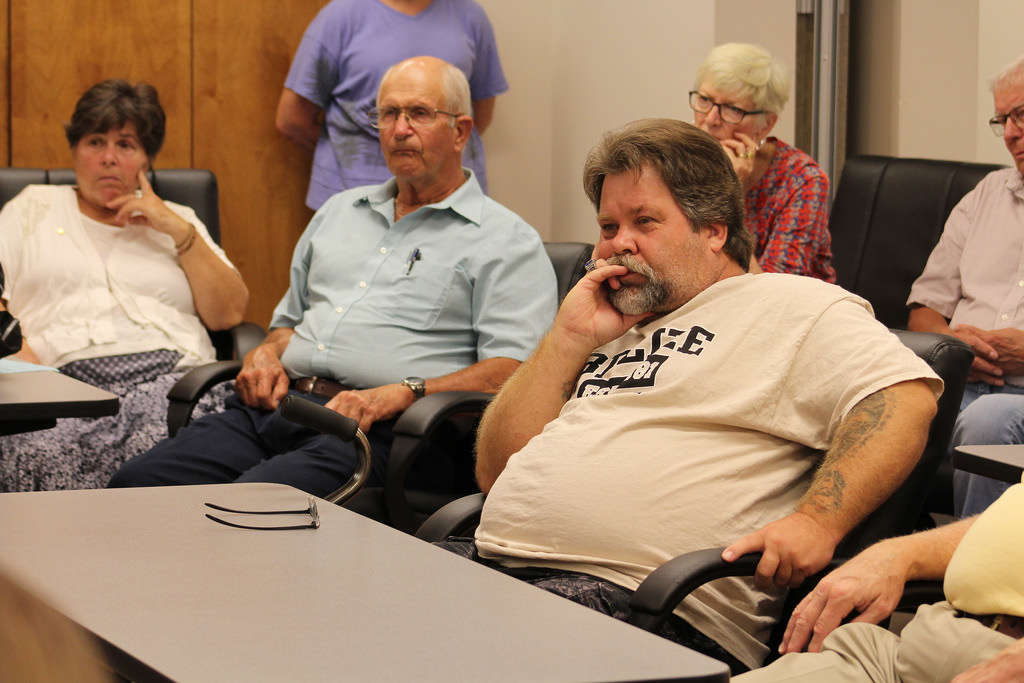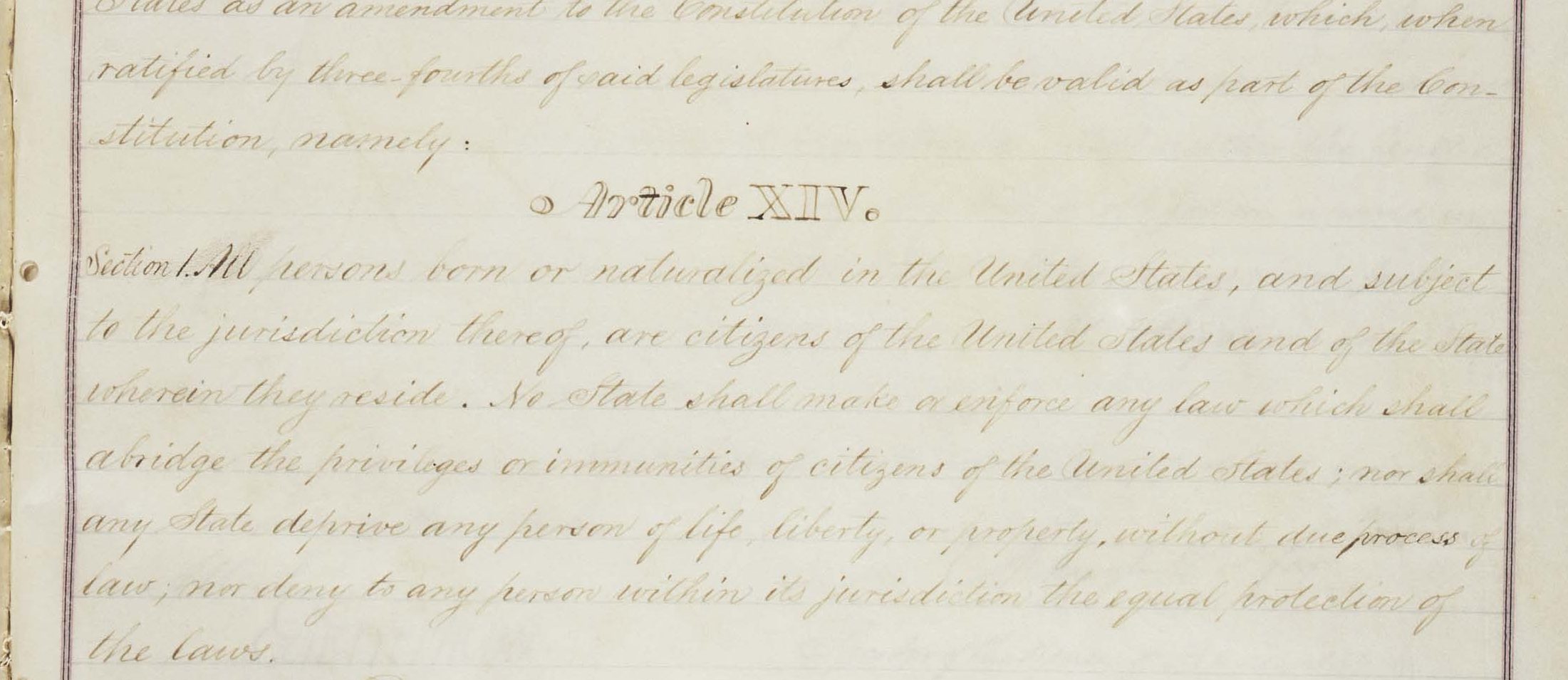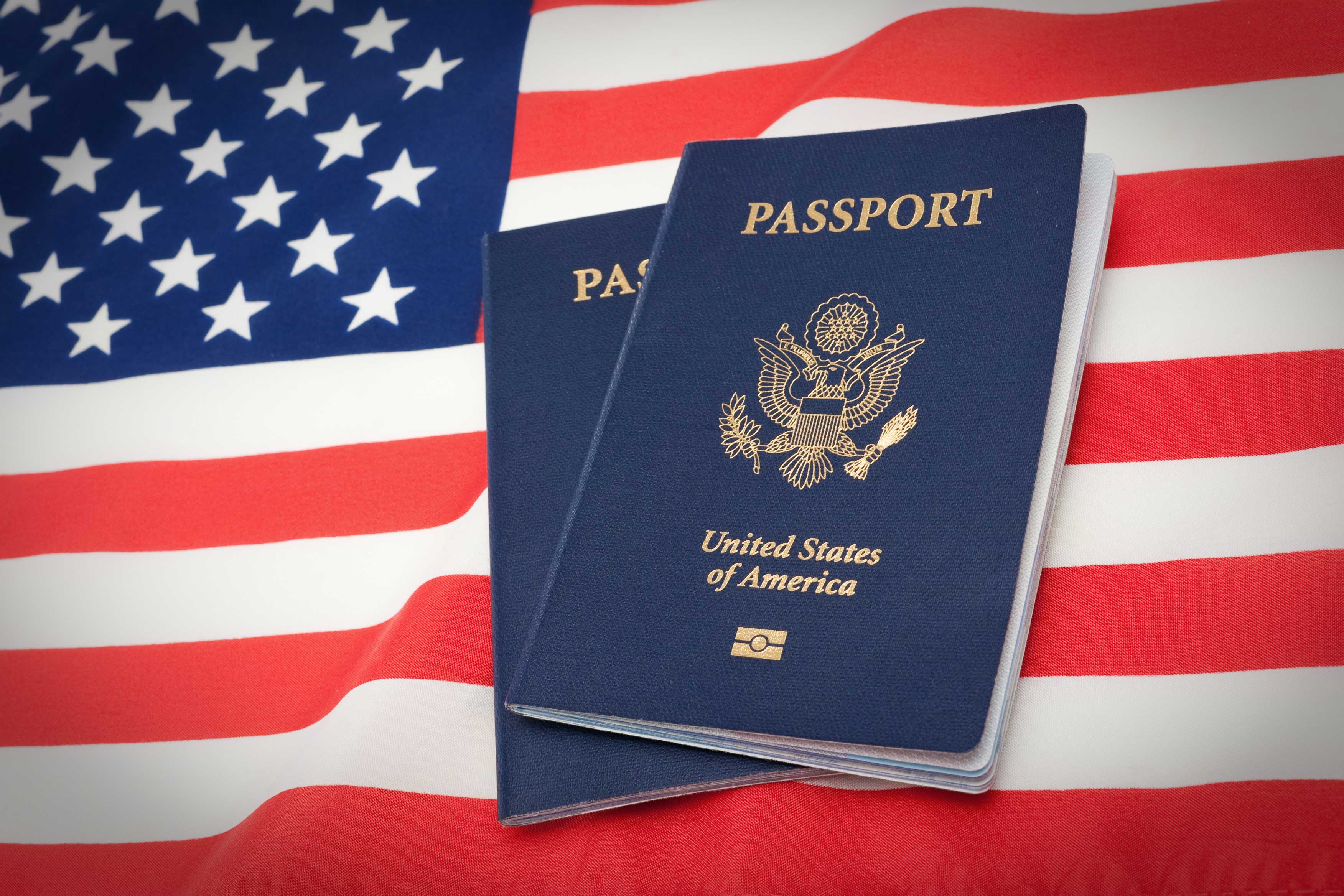Birthright citizenship should be an uncontroversial right.
Birthright Questions, Founding Answers

The Declaration and the Fourteenth Amendment grasped citizenship through social compact.
In his recent entry in the American Mind debate, Professor John Yoo claims that the question of birthright citizenship is a settled issue. I regret that he wasn’t able to read my remarks on the Congressional debate surrounding the Citizenship Clause of the Fourteenth Amendment before he submitted his argument. Not only did I reopen the question of birthright citizenship, but I refuted every argument advanced in Professor Yoo’s claim to have understood the historical, constitutional, and philosophical foundations of American citizenship.
From Subjects to Citizens
Professor Yoo’s principal mistake is his assumption that citizenship is either jus solis, based on one’s place of birth, or jus sanguinis, based on the citizenship of one’s parents. The framers of the Constitution and the Fourteenth Amendment grounded citizenship on neither of these; rather, they based citizenship on social compact and the consent of the governed—the only basis they believed was consistent with the principles of the Declaration of Independence and republican government.
While the Constitution doesn’t define citizenship, Professor Yoo asserts that American practice adopted the English common law of jus solis. The authoritative source for the English common law at the time of the founding was William Blackstone. Well known to the Founders themselves, Blackstone always speaks of “natural born subjects” who owe the obligation of “perpetual allegiance” for having been born within the protection of the King. Blackstone admits this was an inheritance from the “feudal system,” deriving from the “mutual trust or confidence subsisting between the lord and vassal.” Blackstone never uses the word “citizen” or “citizenship,” because under the common law there are no citizens, only subjects who owe “perpetual allegiance” that they do not freely choose.
Professor Yoo doesn’t seem to be troubled by the fact that Blackstone never uses the word “citizen.” Nor does Sir Edward Coke, upon whom Blackstone relies, in his famous ruling in Calvin’s Case. This omission, however, did not escape the Founders when they explicitly rejected jus solis and the common law as the basis for American citizenship. Here is the famous passage from the Declaration of Independence:
. . . the good People of these Colonies, solemnly publish and declare, That these United Colonies are, and of Right ought to be Free and Independent States; they are Absolved from all Allegiance to the British Crown, and that all political connection between them and the State of Great Britain, is and ought to be totally dissolved.
Under the common law the colonists owed “perpetual allegiance.” Here they are absolving themselves of that allegiance and dissolving relations with Great Britain without the King’s permission in clear violation of the common law. The common law of jus solis, entailing perpetual allegiance—that relic of feudalism—is not compatible with the principles of the Declaration of Independence, those principles intended to translate subjects into citizens who possess rights and freely accept obligations.
One could hardly argue that subjects and citizens are convertible terms—yet the Supreme Court actually did so in the case of U.S. v. Wong Kim Ark (1898), ruling that the Fourteenth Amendment adopted the common law basis for citizenship. It is clear, however, from the obvious meaning of the Declaration that by absolving “Allegiance” to the Crown the American people rejected British common law and replaced subjectship with citizenship.
The Basis for Citizenship in the American Founding
The American Revolution decisively rejected the concept of “natural born subjects”—a feudal relic of the British common law—and instituted a basis for citizenship that was grounded in republicanism derived from the principles of the American Revolution.
The principles of the American Revolution replaced the prescriptive or historical rights of the English common law with natural rights. Blackstone had spoken of “natural born subjects”—a phrase not out of place in feudalism—but the notion of “natural born subjects” utterly contradicts the Declaration and its central principle that “all men are created equal.” If Jus solis were the basis for citizenship, citizenship would be based solely on the accident of birth. Thomas Jefferson, in the Summary View of the Rights of British America (1774) argued that all human beings possessed a natural right to expatriation, “of departing from the country in which chance, not choice has placed them.” Choice, of course, implies reason—and reason is the foundation of natural right. Expatriation was prohibited by the common law, on the other hand, because it would violate the obligation of “perpetual allegiance.”
Expatriation is not the only natural right that is not allowed to “natural born subjects” owing “perpetual allegiance” under the English common law. Natural born subjects do not possess the right that protects every other right—the right to “alter or abolish government” when it fails to secure the “safety and happiness” of the people—or, in other words, to absolve allegiance and dissolve political connections.
The Declaration specifies that the “just powers” of government derive from “the consent of the governed.” Choice implies deliberation, and deliberation and choice are the essential ingredients in the establishment of government. One might even say that that “accident and force” is the leitmotif of the common law.
The same choice is essential to citizenship. James Madison is not only famous for his insistence that the Constitution derives its authoritative principles from the Declaration, but also for his oft-repeated statement that “all power in just & free Govt is derived from compact.” Madison undoubtedly regarded the Declaration as the quintessential example of social compact where citizenship was based on the consent of each individual who chose to enter civil society for the equal protection of equal rights.
Thus social compact, not jus solis, was the new basis for citizenship.
The Founding generation was virtually unanimous that social compact was the rightful and just basis for civil society and that consent was the basis for citizenship. A good example of that consensus is the Massachusetts Bill of Rights (1780) written by John Adams, coauthor of the Declaration. The preface to that notable document is as perfect an expression of social compact as can be found:
The end of the institution, maintenance, and administration of government, is to secure the existence of the body politic, to protect it, and to furnish the individuals, who compose it, with the power of enjoying, in safety and tranquility, their natural rights, and the blessings of life: and whenever these great objects are not obtained, the people have a right to alter the government, and to take measures, necessary for their safety, prosperity, and happiness. The body politic is formed by a voluntary association of individuals. It is a social compact, by which the whole people covenants with each citizen, and each citizen with the whole people, that all shall be governed by certain laws for the common good. It is the duty of the people, therefore, in framing a Constitution of Government, to provide for an equitable mode of making laws, as well as for an impartial interpretation, and a faithful execution of them; that every man may, at all times, find his security in them.
The Fourteenth Amendment and Jurisdiction
Professor Yoo argues that all persons born within the territorial limits of the US, with only a few exceptions, are natural born citizens, regardless of the status of their parents. Indeed, he concludes, virtually all aliens present in the country are subject to the jurisdiction of the United States because they are subject to the laws of the United States. If this were not the case, “aliens present on our territory could violate the law with impunity.”
Here Professor Yoo makes a common mistake. The Fourteenth Amendment’s qualification for birthright citizenship—those “subject to the jurisdiction”—does not mean subject to the law or to the courts. That is the definition of “jurisdiction” in the law dictionary, but it is not what the framers of the Citizenship Clause said it meant. An original intent jurisprude must credit the framers of the amendment above the authors of legal dictionaries.
But the most fundamental reason we should understand the Amendment this way is not simply because the framers said so, but why.
The principal framers of the Fourteenth Amendment said that “subject to the jurisdiction” meant “subject to the complete jurisdiction” of the United States, “owing allegiance to no other country.” I provided ample evidence in my earlier remarks to prove this point. There is no evidence whatsoever from the congressional debates that “subject to the jurisdiction” mean simply “subject to the laws and the courts.” As I demonstrated with multiple references to the legislative history, the language of “allegiance” was not merely contained in “scattered” references as Judge Ho claims.
Both Professor Yoo and Judge Ho ask why the framers didn’t use the phrase “subject to the allegiance” in the amendment instead of “subject to the jurisdiction”, if that is what they meant. But, as I indicated previously, Senator Trumbull, author of the Civil Rights Act of 1866, said he considered the language of “allegiance” as a qualification of citizenship, but rejected it because it was a term of art under the common law—and would have required granting citizenship to those temporarily in the country who owed no allegiance to the United States!
The Civil Rights Act was passed over President Andrew Johnson’s veto less than two months prior to debate over the Citizenship Clause in the Senate. Most of the Senators who debated the Clause were part of the two-thirds majority who voted for the Act and presumably agreed with Senator Howard when he said that the Clause reflected the law as it already existed. As Professor Yoo recounts, the Civil Rights Act denied birthright citizenship, not only to “Indians not taxed,” but those “subject to any foreign power.”
If birthright citizenship was denied to those “subject to any foreign power”, how can it be argued that everyone born within US territory is automatically a natural born citizen of the United States?
The Chinese and Gypsy Objection
The proof, according to both Professor Yoo and Judge Ho, is the fact that both Chinese and Gypsies were explicitly included within the definition of citizen in both the Civil Rights Act and the Citizenship Clause of the Fourteenth Amendment. But here Professor Yoo and Judge Ho offer a tendentious and demonstrably false reading of the congressional debates. I have rebutted the arguments of Judge Ho in my previous essay and give only a brief summary here.
Both Professor Yoo and Judge Ho mention Senator John Conness’s argument about the Chinese, but no other Senator took his argument seriously. It is unlikely that he did so himself. Even Judge Ho is reluctant to credit Conness’s advocacy because he indulged in crass, “racially charged remarks.” No Senator acted on Conness’s suggestion or so much as mentioned his speech.
Judge Ho’s misreading of crucial passages of the Civil Rights Act debates, which is caused in part by mistaking Senator Lyman Trumbull’s remarks as an endorsement of Chinese citizenship, is also discussed in my previous essay. By way of a short reprise: Trumbull responded to a question about whether or not his first definition of citizenship failed to exclude Indians. He answered: “It is not intended to include them.” A second question was immediately asked: does the language as it now stands “have the effect of naturalizing the children of Chinese and Gypsies born in this country?” Trumbull answered “Undoubtedly.” It is impossible upon close reading to interpret Trumbull’s remark, as Judge Ho does, as an endorsement of citizenship for Chinese and Gypsies.
Trumbull is only admitting that the first draft of the language he has submitted is broad enough, not only to include Indians, but Chinese and Gypsies as well. He concurred with the objectors to the overbroad language that restrictions were needed, and he proceeded to amend his initial language to exclude “Indians not taxed.” Nothing was said about excluding Chinese or Gypsies, but it was the unamended—not the subsequently amended (and final)—language to which the “undoubtedly” response referred. The “undoubtedly” answer that Trumbull gave to the question about Chinese and Gypsies simply cannot be read as an endorsement of citizenship. Judge Ho seems to have followed Justice Miller’s muddled recounting of the debate in the Wong Kim Ark case rather than his own reading of the debates. And Miller himself discounted the value of using congressional debates as a means of illuminating constitutional text.
The phrase “subject to any foreign power” undoubtedly carried over to the Fourteenth Amendment as “the law of the land.” When Howard remarked that birthright citizenship did not apply to “foreigners, aliens,” who can doubt this did not encompass the meaning as it was understood in the Civil Rights Act—and did not apply only to ambassadors and their families, as we are asked to believe today?
U.S. v. Wong Kim Ark Contradicts America’s Founding Principles
I will have more to say about U.S. v. Wong Kim Ark (1898) in subsequent remarks. For now, Justice Gray’s majority opinion, arguing that the Fourteenth Amendment adopted the English common law basis for citizenship is a perfect non-sequitur.
Gray argues that the foundation of legal education at the time of the founding was the study of the common law. Correct. But Gray would have us conclude that because the founders were steeped in the works of Blackstone they must have adopted the English common law as the basis for citizenship, a basis that was simply renewed by the Fourteenth Amendment. As I have shown, both assumptions are wrong and need to be reversed.
Chief Fuller’s dissent in Wong Kim Ark is a more authentic account of the founding principles and the intent of the framers of the Fourteenth Amendment. He reprises the thought of Madison: anything in the common law in conflict with the principles of the Declaration was repealed by the Revolution. That rule, he rightly says, animated the framers of the Fourteenth Amendment as well. If birthright subjectship was not repealed by the Revolution, nothing was!
Wong Kim Ark was wrongly decided and should be overturned. The question of birthright citizenship, Professor Yoo to the contrary notwithstanding, is not settled.
The American Mind presents a range of perspectives. Views are writers’ own and do not necessarily represent those of The Claremont Institute.
The American Mind is a publication of the Claremont Institute, a non-profit 501(c)(3) organization, dedicated to restoring the principles of the American Founding to their rightful, preeminent authority in our national life. Interested in supporting our work? Gifts to the Claremont Institute are tax-deductible.
The 14th Amendment settled the question of birthright citizenship.
The political consequences of cultural freefall.
A reply to the hysterical arguments made by progressive liberals and others who should know better.
A reply to Professor John Yoo's and Judge James Ho's case for the original understanding of the 14th Amendment.
It's stronger than you think.






